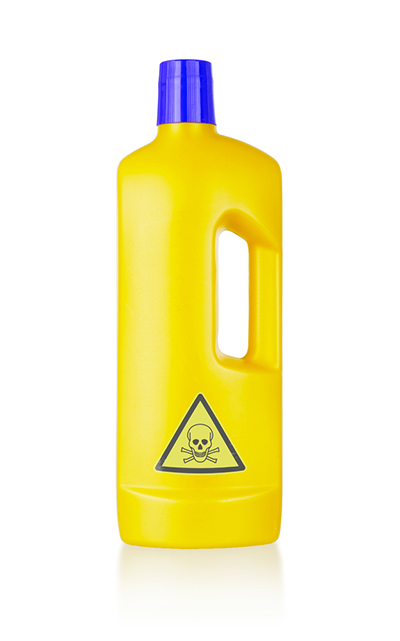Support justice-driven, accurate and transparent news — make a quick donation to Truthout today!
Four chemicals present both inside and outside homes might disrupt our endocrine systems at levels considered safe by the US Environmental Protection Agency, according to an analysis released April 15.
The chemicals – benzene, toluene, ethylbenzene and xylene – are ubiquitous: in the air outside and in many products inside homes and businesses. They have been linked to reproductive, respiratory and heart problems, as well as smaller babies. Now researchers from The Endocrine Disruption Exchange (TEDX) and the University of Colorado, Boulder, say that such health impacts may be due to the chemicals’ ability to interfere with people’s hormones at low exposure levels.
“There’s evidence of connection between the low level, everyday exposures and things like asthma, reduced fetal growth,” said Ashley Bolden, a research associate at TEDX and lead author of the study. “And for a lot of the health effects found, we think it’s disrupted endocrine-signaling pathways involved in these outcomes.”
Bolden and colleagues – including scientist, activist, author and TEDX founder Theo Colborn who passed away last December – pored over more than 40 studies on the health impacts of low exposure to the chemicals.
(Colborn also co-authored “Our Stolen Future” along with Dianne Dumanoski and Pete Myers, founder of Environmental Health News and chief scientist at Environmental Health Sciences.)
They looked at exposures lower than the US Environmental Protection Agency’s reference concentrations for the chemicals, which is the agency’s estimated inhalation exposure level that is not likely to cause health impacts during a person’s lifetime.
Many of the health problems – asthma, low birth weights, cardiovascular, disease, preterm births, abnormal sperm – can be rooted in early disruptions to the developing endocrine system, Bolden said.
The analysis doesn’t prove that exposure to low levels of the chemicals disrupt hormones. However, any potential problems with developing hormone systems are cause for concern.
“Hormones are how the body communicates with itself to get work done. Interrupt that, you can expect all sorts of negative health outcomes,” said Susan Nagel an associate professor at the University of Missouri-Columbia Obstetrics, Gynecology and Women’s Health School of Medicine who was not involved in the study.
Cathy Milbourn, a spokesperson for the EPA, said in an emailed response that the agency will “review the study and incorporate the findings into our work as appropriate.”
The “EPA is screening thousands of chemicals for potential risk of endocrine disruption,” she said. “As potential risk of endocrine disruption is identified, these chemicals are assessed further.”
The four chemicals are retrieved from the wellheads during crude oil and natural gas extraction and, after refining, are used as gasoline additives and in a wide variety of consumer products such as adhesives, detergents, degreasers, dyes, pesticides, polishes and solvents.
Ethylbenzene is one of the top ten chemicals used in children’s products such as toys and playground equipment, according to a 2013 EPA report. Toluene is in the top ten chemicals used in consumer products such as fuels and paints, the report found.
All four get into indoor and outdoor air via fossil fuel burning, vehicle emissions and by volatizing from products. Bolden said studies that measure the air in and around homes and businesses find the chemicals 90 to 95 percent of the time.
Katie Brown, spokeswoman for Energy in Depth, a program of the Independent Petroleum Association of America, said in an email that the study suggests “products deemed safe by the US Consumer Product Safety Commission are more dangerous than oil and gas development.
“Contrary to their intentions, what this report actually shows is that people should be no more afraid of oil and gas development than products in their home,” she said.
The Consumer Specialty Products Association, a trade group that represents companies that manufacturer consumer goods including cleaning products, pesticides, polishes, would not comment on the study but a spokesperson said that member groups typically don’t use the chemicals mentioned.
In several of the monitoring studies Bolden and colleagues examined, levels of the chemicals were higher in indoor air than in outdoor air, suggesting that people might be exposed within their homes.
“A lot of time indoor air is poorly circulated,” Bolden said.
Nagel cited a “huge need” to look at the impact of exposure to ambient levels of these chemicals. The study highlights “a whole lot we don’t know” about how these compounds may impact humans, she said.
Using human tissue cells, Nagel’s lab has previously shown that the chemicals can disrupt the androgen and estrogen hormones.
The authors said regulators should give air contaminants the same attention they’ve given greenhouse gas emissions recently.
“Tremendous efforts have led to the development of successful regulations focused on controlling greenhouse gases in an attempt to reduce global temperatures,” the authors wrote in the study published April 15 in Environmental Science and Technology journal.
“Similar efforts need to be directed toward compounds that cause poor air quality both indoors and outdoors.”
Press freedom is under attack
As Trump cracks down on political speech, independent media is increasingly necessary.
Truthout produces reporting you won’t see in the mainstream: journalism from the frontlines of global conflict, interviews with grassroots movement leaders, high-quality legal analysis and more.
Our work is possible thanks to reader support. Help Truthout catalyze change and social justice — make a tax-deductible monthly or one-time donation today.
